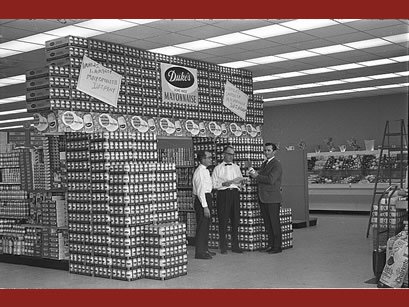From the by Ramon Murphy and NYAGS’
The City Council is once again proposing a regulation, Intro 209, that will make it more difficult for city retailers to successfully do business. This time, it’s a 10 cent tax on all plastic bags, with the stated goal of getting New Yorkers to discard plastic in favor of reusable bags.
What needs to be understood by way of context is that NYC retailers are already over-taxed and over-regulated. In fact, the Tax Foundation ranks New York’s state and local tax burden as the highest in the nation. As it points out: “New York ranks 50th in the Tax Foundation’s State Business Tax Climate Index. The Index compares the states in five areas of taxation that impact business: corporate taxes, individual income taxes, sales taxes, unemployment insurance taxes, and taxes on property, including residential and commercial property.”
In addition, as the US Chamber of Commerce points out about regulation, “New York City is below the average performance of the 10 cities covered in the report in 2014. The largest city in the United States is also the most burdensome for small businesses and entrepreneurs across areas of business regulation.”
The proposed bag tax, then is another that looks innocuous by itself but, as part of an increasingly burdensome climate that has led to a decade-high level of small retail store vacancies and foreclosures, is the nail in the coffin of small business. It creates another opportunity for city regulators to enter our stores, find a costly violation, and further erode the store’s profitability.
The city council members who support the bag tax argue that it is necessary because plastic bags are a danger to the environment-and by taxing them we will encourage consumers to shift to reusable bags that are more environmentally friendly. Perhaps, if this were true, the costs to our struggling retailers might be justified.
The sponsors of the measure argue that the experience of cities around the country strongly indicate that a bag fee will promote a major shift to reusable bags. A reduction between 60-90% is suggested based on the evidence from those cities that have instituted such a fee.
But how reliable is the evidence? Much of it emanates from environmental advocates and government officials with a vested interest in promoting the success of measures that they strongly supported. The experience of the District of Columbia suggests something starkly different.
The District instituted a plastic bag tax four years ago. In the interim, advocates and officials have touted it as a huge success-a 60 percent drop in household bag use and many fewer plastic bags littering city streets, according to the city’s environmental officials.
But as The Washington Post reported, an examination of the actual taxes collected on the bags shows a radically opposite reality: “City revenue figures, meanwhile, show no continuing decrease in the use of disposable bags.”
As one critic of the measure points out: “At the time the tax was imposed, D.C. estimated that they would collect $1.05 million in revenues in 2013. The actual haul – more than $2 million. Year-over-year, revenues even increased… by the equivalent of 200,000 bags.”
So, when the dust settles the evidence indicates that people may actually rather fight to keep their plastic bags rather then switch-making the 10 cent fee a harshly regressive tax on low income New Yorkers. Intro 209, then, fails on its own assumptions, but succeeds remarkably at burdening already over burdened stores and cash strapped consumers.
If plastic bags pose an environmental challenge the City Council needs to find a better way to address the problem. Making our retailers take on the responsibility for the city’s failed environmental policies is simply unfair and counterproductive.
Ramon Murphy is president of the Bodega Association of the United States. Brad Gerstman is the founder of the New York Association of Grocery Stores.
Read more at http://observer.com/2014/11/bodegas-a-tax-on-plastic-bags-is-ineffective-and-harmful/#ixzz3KNPHIva9
Read more from the

{ 0 comments… add one now }